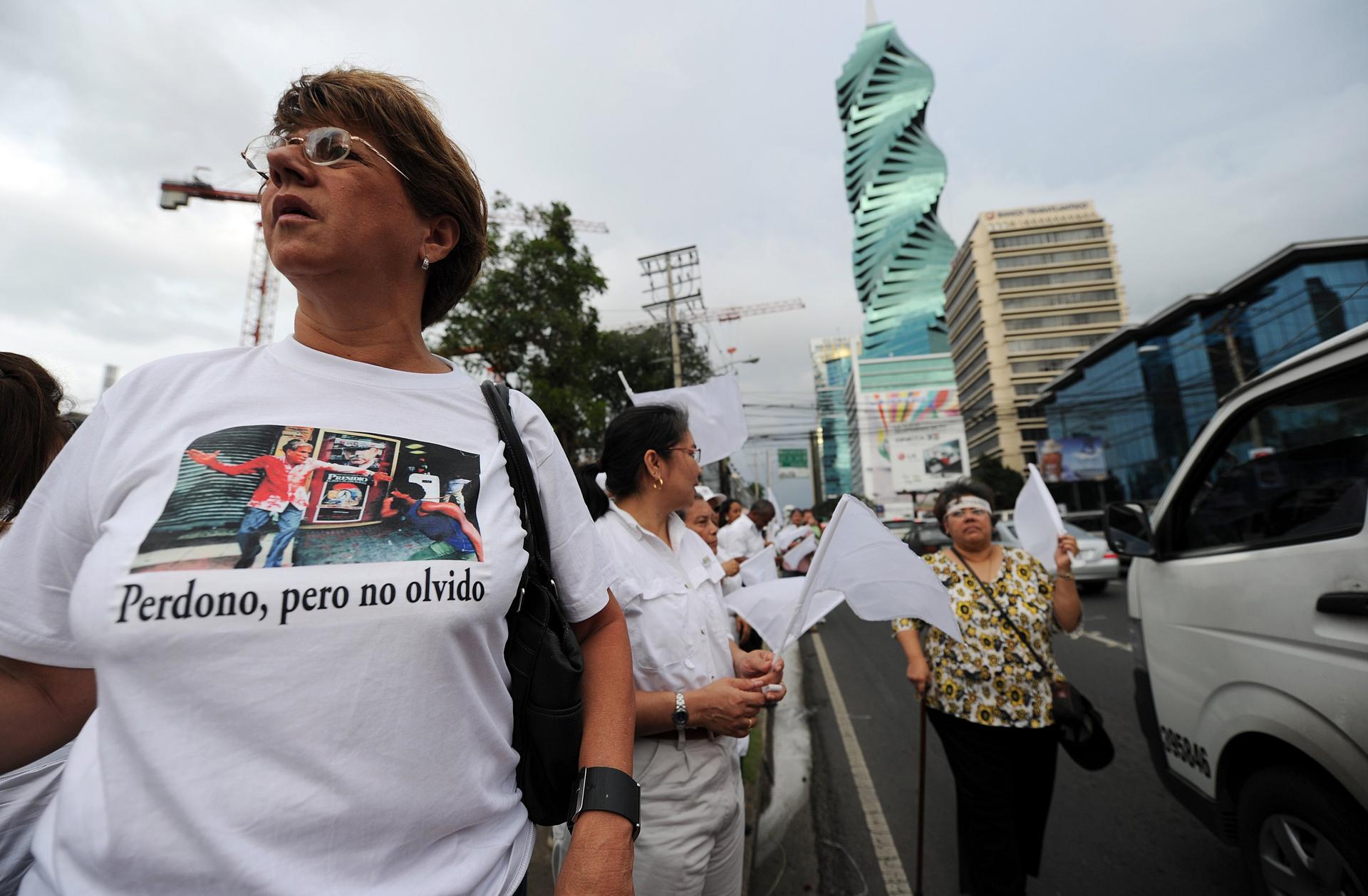Manuel Noriega flown home to Panama to face punishment
Panamanian people protest against the return of former General Manuel Noriega to Panama, in Panama City on December 09,2011. Noriega returns to Panama without the trappings of political or military clout, but with something of incalculable value — detailed knowledge of the skeletons that lurk in the Central American nation’s closet. AFP PHOTO/Rodrigo ARANGUA (Photo credit should read RODRIGO ARANGUA/AFP/Getty Images)
Manuel Noriega has been flown home to Panama to face punishment for the slayings of two political opponents in the 1980s after spending more than 20 years in US and French prisons for drug trafficking and money laundering.
Noriega, a former Cold War ally of Washington who was toppled in a US invasion of Panama in 1989 — was escorted from La Sante prison in Paris, France, in a police convoy to a commercial flight to Panama, via Madrid, The Associated Press reported.
Noriega's return is unlikely to have a major political impact on Panama, according to Britain's Daily Telegraph:
Widely reviled when he was Panama's de facto leader from 1983 until 1989, his small cadre of remaining supporters has kept a low profile and even bitter opponents dismiss Noriega as part of a distant, shadowy past.
However, the AP quotes Panamanians as saying they still want the 77-year-old to pay for his electoral fraud and the murder of political opponents.
Noriega — an ex-general nicknamed "Pineapple Face" owing to his pockmarked face — was convicted in absentia in three homicide cases involving 11 murders, Reuters reported.
Victims included Hugo Spadafora, a physician who threatened to reveal Noriega's drug ties, beheaded in 1985, and up to 11 soldiers who staged a failed coup.
"Noriega was responsible for the invasion and those who died in the operation. He dishonored his uniform, there was barely a shot and he went off to hide. He must pay," the AP quoted Hatuey Castro, 82, a member of the anti-Noriega opposition who was detained and beaten by his thugs in 1989, as saying.
Noriega faces three 20-year jail terms in Panama for crimes committed during his military rule (he was never president).
The US invasion of Panama that ousted Noriega was, the AP wrote, "one of the most bitterly debated events of the Cold War's waning years."
Noriega, co-opted by US intelligence while still at military college, worked closely with the CIA during his rise through the Panamanian military ranks during the 1970s and 1980s, helping the US combat leftist movements in Latin America. According to the AP, Noriega "also acted as a back channel for U.S. communications with unfriendly governments such as Cuba's."
He reportedly fell out with Washington over his ties to Colombian drug traffickers, with whom he made millions shipping cocaine to the US.
He was arrested by invading American troops in January 1990, amid allegations he had turned the Central American nation into a drug-trafficking hub, and spent 20 years in a Florida prison before being extradited to France.
.
Every day, reporters and producers at The World are hard at work bringing you human-centered news from across the globe. But we can’t do it without you. We need your support to ensure we can continue this work for another year.
Make a gift today, and you’ll help us unlock a matching gift of $67,000!
